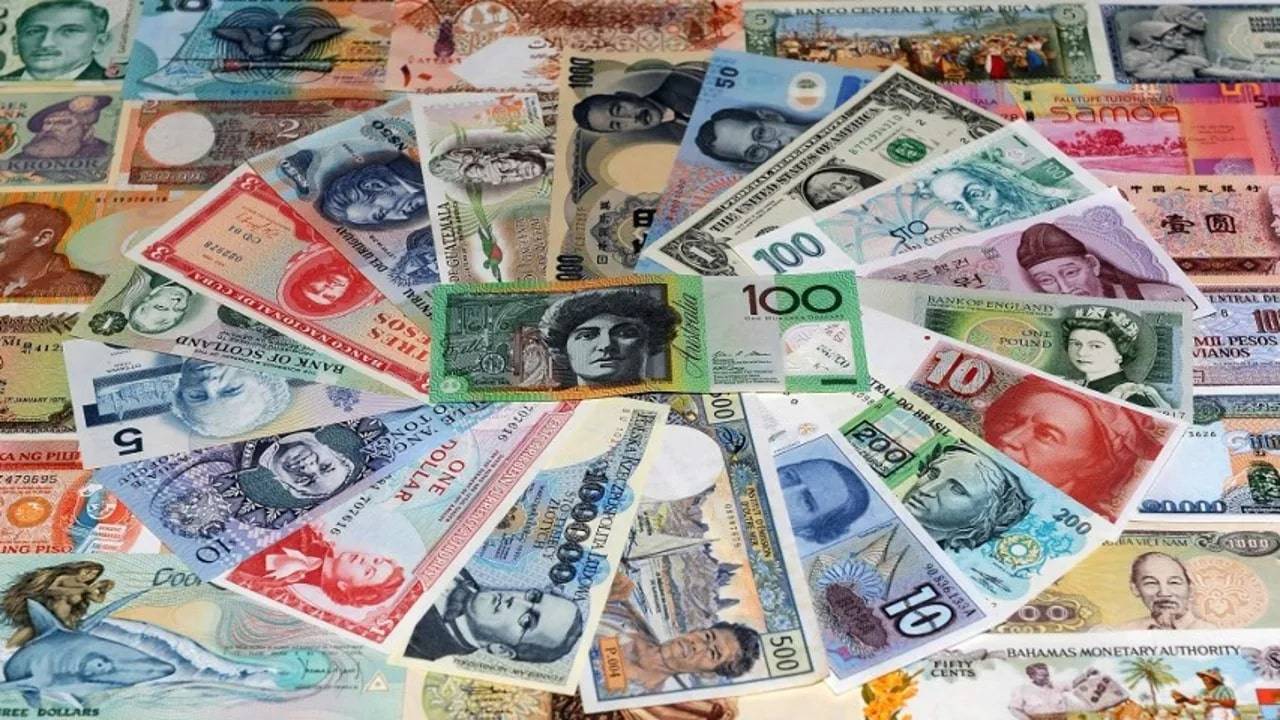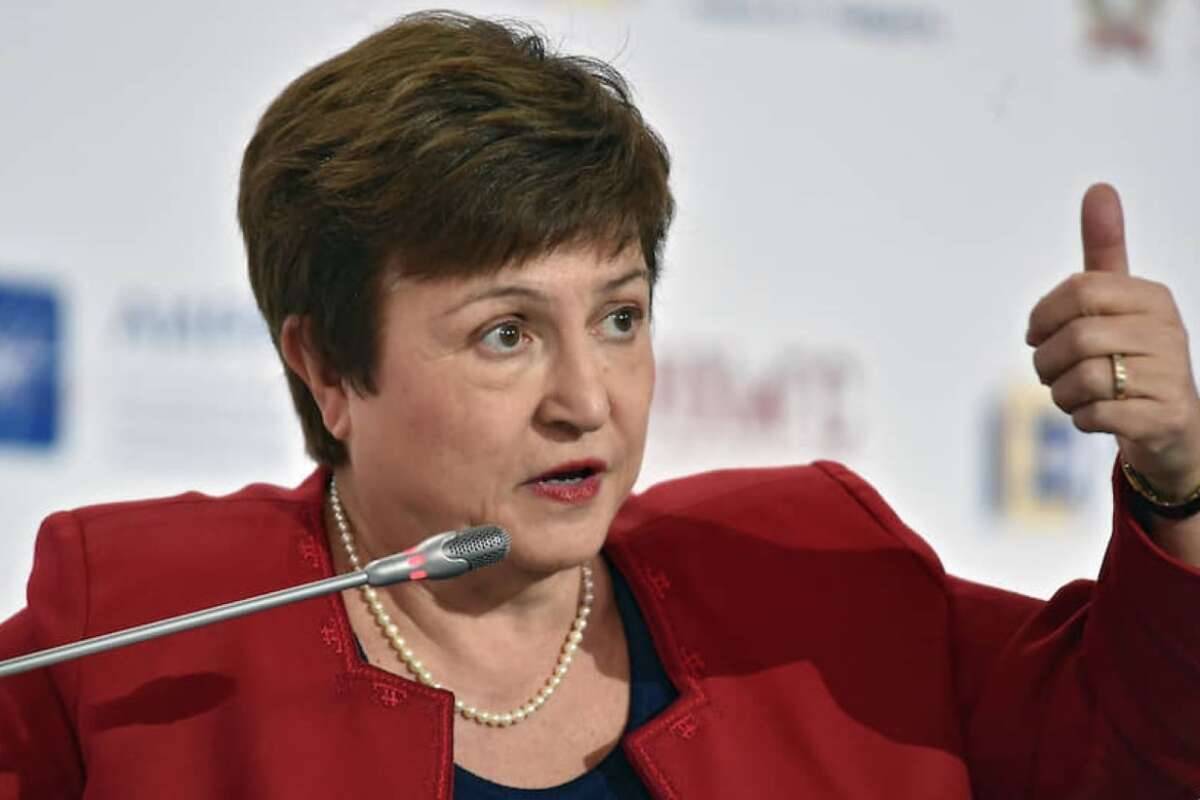Ruble horror of the IMF and Zelensky's European nightmares. Currency redistribution continues

Gas for rubles is forever
If someone thought that gas for rubles is not for long, he seems to be greatly mistaken. Russia, if they begin to bend it the way it is now, cannot but respond. At the DNA level, we have absorbed the sad experience of a 300-year yoke, which the Eurasians are ready to present almost as effective cooperation and good.
The authors have full respect for Lev Nikolaevich Gumilyov, and have nothing against the very idea of a turn to the East, as well as Eurasianism, as a kind of global political philosophy. However, now we are not up to such large-scale experiments for centuries to come.
Moreover, the collective and such the entire liberal West wants from us not "cooperation", but slavery. Raw or something else, it doesn't matter. And the achievements in terms of Russia's sovereignty, achieved over the years of wars and revolutions at the cost of tens of millions of lives, turned out to be squandered too quickly.
We have to return the price of new blood, as we see, quite a lot. The XNUMXth and even more so the XNUMXst century have shown that the replacement of blood for dollars in the modern world is an absolutely familiar phenomenon. However, when dollars are taken from you for nothing, agree that it is better to demand retribution with the blood of the Nazis.

Why this lengthy introductory speech? And besides, it is necessary to switch to settlements in rubles wherever possible and impossible, and better sooner than later. And the utter hysteria, which the civilizers from the West gave birth to on this occasion, and now also their “common fund” - the IMF, only convinces of this approach.
While the dollar is neither a friend nor an enemy, and so ...
The USSR, whose successor is none other than Russia, at one time agreed to sign the Bretton Woods agreements, in fact recognizing the hegemony of the dollar. However, the Iron Curtain was then only ajar, and although the country needed the currency, it was still not like air.
The ambitious tasks of space exploration and achievement of atomic parity were solved without extra dollars. The currency funds themselves were rather considered by the Soviet leadership as a means to slightly sweeten the life of the party and economic nomenklatura. Especially in the national republics and on the periphery, which is not always politically reliable.
A serious backlog of the USSR in terms of the consumer market and advanced technologies, again, those that are focused not on the defense industry, but on the general public, was outlined when the country got involved in an arms race. Yes, the need for foreign currency grew a lot, but then our oil went abroad, and then gas.
On the contrary, in addition to the currency, attractive goods, as well as films and music, also went. By the way, wasn’t it from there and wasn’t it then that the conviction of future Chicago boys, but first of all their teachers, grew up that “we don’t need advanced industries at all, we can buy everything”?
And the same party leaders, aging when the colonial system was collapsing, seem to have seriously believed in the reality of the world revolution. The members of the Politburo clearly had ambitions going wild. The IMF was not too afraid of the Union at that time, since the ruble, even foreign currency, remained, as it were, outside the brackets and did not encroach on the dominance of the dollar.
What are the IMF afraid of now?
Now the situation is completely different - for three decades Russia has been integrated into the world economy and finance with all its might, turning not only oil and gas, but also financial regulators, and therefore the dollar, into a hostage. The current attempt to get rid of such dependence is perhaps the most dangerous for the same IMF.
And it's not even about the prospect of ruble settlements. The trend is more important, although if it leads to a strong fall in the US currency, it is even beneficial for the US. Their debts will depreciate, especially government debts. However, the IMF institution itself may suffer, and severely.
The levers will go away, which means that losses in the fund's profits are inevitable, although the West likes to remind that the IMF is not a bank at all and its task is not to make profits. But after all, the World Bank, which is controlled by the fund, is very much in it.
The first to oppose Russia's ruble counteroffensive were, as expected, the gas buyers. It is not entirely clear why, because they simply have nothing to lose on this. If only the opportunity to put pressure on the seller. But now the highest ranks of the IMF have fallen into an inexplicable panic.
First, the chief economist of the International Monetary Fund, Pierre-Olivier Gurinsha, spoke about the threat of the collapse of the currencies of countries closely connected with the economy and finances of Russia and Ukraine. According to him, the depreciation of the national currencies of these countries is almost inevitable.
Prognosis as a diagnosis
Sounds like a threat. Moreover, it is a direct one, because it is no secret to anyone that the ruble has always pulled the currencies of its neighbors with it - especially the ruble of Belarus, the Kazakh tenge and the Armenian dram. So, the IMF wants them to pull the ruble now, and better down. According to an official from the IMF, the fall of "small" currencies can lead to additional shocks to the economies of these states.
But in general, as you can see, just in case, Mr. Gurinsha expressed himself somewhat ornately:
The economist puts the neighbors of Russia simply the same diagnosis - "Depreciation of currencies can cause additional inflation on imported goods." Most likely, he meant the money not only of Russia's partners in the EAEU - Belarus, Kazakhstan, Armenia and Kyrgyzstan, but also the Baltic countries, possibly Finland, and certainly Turkey.
Pierre-Olivier Gurinsha hardly takes into account the factor of replacing Russia's Western partners, who are forced to hastily cut off many ties due to sanctions. And this factor can not only neutralize, but also block the negative effect of binding, albeit very indirectly, the currencies of our neighboring countries to the Russian ruble.
Based on his negative assessments of the consequences of the special operation in Ukraine, the chief economist of the IMF noted that they "have a significant impact on the revision of forecasts for the development of the world economy." Gurinsha has not yet voiced his forecasts, but he believes that these factors "outpacing both the slowdown in China's economy and the tightening of monetary policy in developed countries."
It is pointless to argue with the latter, since the West hit first of all on itself with sanctions, but a somewhat hasty conclusion on China can be challenged. For the Celestial Empire, Russia's turn to the East, which has already begun, is a real gift. It is unlikely that anyone will say that the discovery of a colossal raw material resource, and at the same time a promising Russian market, is bad for the Chinese economy.
More dynamism or more money?
Interestingly, immediately following the speech of the chief economist with a disappointing forecast for world finance, read - for the dollar, at a recent traditional briefing, IMF Managing Director Kristalina Georgieva spoke. No, first she said she was expecting "more dynamism in the world of money."

What money, she did not specify, noting that
Georgieva pointed out that "in recent decades" there has been a "diversification of reserve currencies".
However, the “gas” sortie of the ruble, traditionally a surrogate against the dollar and the euro, is by all indications a surprise for her. Nevertheless, Ms. Georgieva stated that the dollar "reduced its share of the reserves by about 10% from 70% to just under 60%." And this, apparently, is no longer just a trend, but, again, a diagnosis.
Evaluate how Madame from the IMF responded to a direct proposal from one of the journalists to “get away from the dollar”:
Instead of PS What else does the president not know about?
From the liberated, more precisely, demilitarized and denazified territories of the Kherson and Zaporozhye regions, more and more reports are coming in about the transition to settlements in rubles. Such news - personally for the "still president" Zelensky to think. At least sometimes...
- Alexey Podymov, Anatoly Ivanov
- smotrim.ru, imf.org
Information